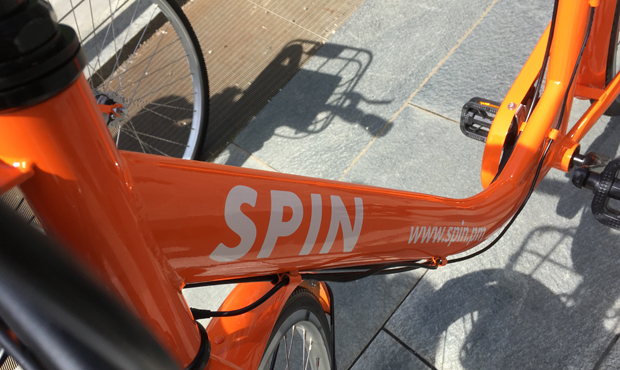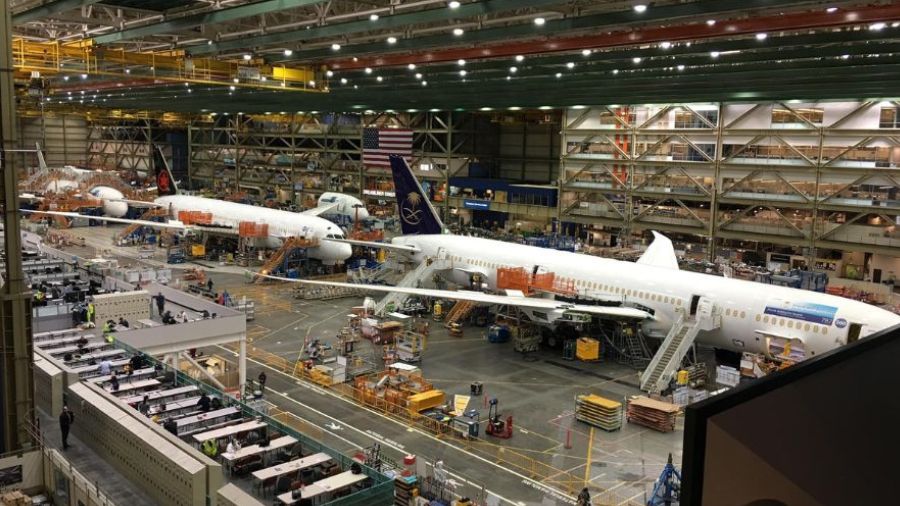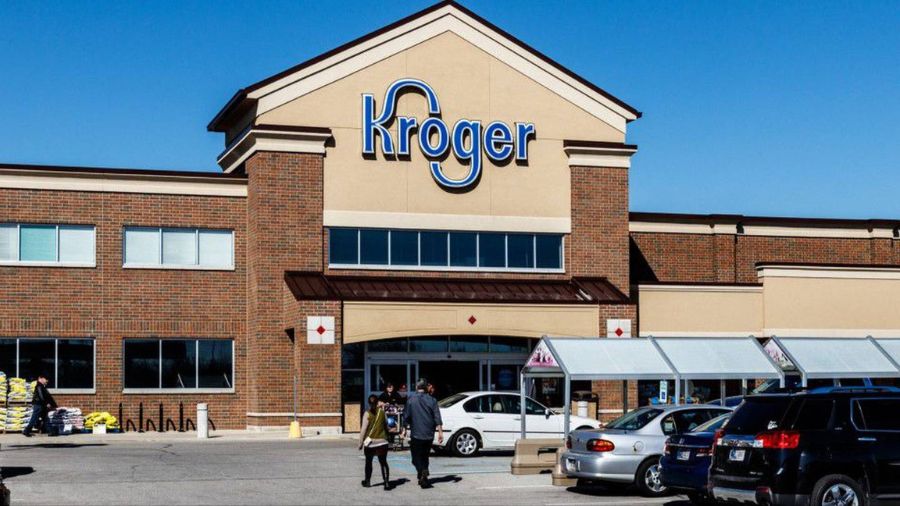Why Spin bikeshare decided to pull out of Seattle
Aug 17, 2018, 9:50 AM | Updated: Aug 20, 2018, 8:01 am

Spin bikeshare showcased its orange bikes at Seattle City Hall May 31, 2017 in advance of its launch in the city. (Dyer Oxley, MyNorthwest)
(Dyer Oxley, MyNorthwest)
Citing Seattle’s expensive fees and the inability to expand its scooters into the city, Spin bikeshare announced that it is leaving Seattle.
In a statement, Spin explains its decision to pull its fleet from Seattle.
Spin has been proud to serve Seattle, our first city, since July 2017. We have been particularly grateful to the City for welcoming us to the community and for pioneering the dockless mobility trend with us in the United States. Since our launch in Seattle, we have added electric scooters to our fleet, and we’ve found that these vehicles generate more than 20 times the consumer demand than that of bikes. We have since made the decision to focus on bringing scooters, and other forms of pedal-less electric mobility, to our markets around the country.
As SDOT formulated the new permit rules, we had hoped the requirements would allow scooters. We also expressed our concerns about the proposed requirement that all operators pay a flat fee of $250,000. We believe fees should be variable based on an operator’s fleet size, and not an arbitrarily high flat fee, with fleet expansions determined by performance. In fact, we note that every U.S. city that has adopted rules for dockless mobility operations bases fees on the operator’s actual fleet size, including Seattle until now.
Unfortunately, the City will not be allowing scooters in the new permit at this time. We were also disappointed that the City left the flat fee unchanged in the final version of the new permit requirements. In light of these realities, Spin has made the difficult decision to not apply for the bikeshare permit. Nevertheless, we intend to continue working with the City to offer our shared scooters to Seattleites soon.
Spin is the second bikeshare company to leave town after the city revamped its regulations and upped its permit fees for the private companies.
RELATED: Seattle bikeshare history 101
Bikeshare company ofo, based in China, has also pulled out of Seattle. Both companies cite the city’s new bikeshare fees which are dramatically more expensive than during the first year they were allowed to operate under a pilot program.
Seattle now charges the bikeshare companies $250,000 per vendor as a vendor administrative fee. That’s in addition to the $50 the companies have to pay, per bike on the street. There’s also $224 for the permit, or $170 to renew it. And then $260 per hour to pay for staff time to process the permit.
Those costs are all higher than what Seattle charged under the previous pilot program. Companies paid $15 per bike for an administrative fee, $209 per hour for staff time, and $146 for an annual permit.
Spin told Seattle Curbed, who first reported on the company’s departure, that it hoped Seattle would be more accommodating to electric scooters which it promotes in other cities. The company also was not a fan of the new fees.
“We also expressed our concerns about the proposed requirement that all operators pay a flat fee of $250,000,” Spin told Seattle Curbed.
Spin, Lime, ofo, and JUMP
Under Seattle’s official bikeshare permitting program approved in July, the Seattle Department of Transportation expected four companies to operate in town – including ofo, Spin, and Lime (aka Limebike) which were part of the pilot. JUMP – an electric bikeshare company partnered with Uber – is rumored to be courting Seattle, too.
RELATED: What will happen to all the ofo bikes left in Seattle?
There is one company left in Seattle, Lime, which states it plans to stick around. Lime has even expanded into neighboring cities, notably Bellevue which only allows the all-electric Lime-e model.
Spin launched in Seattle at nearly the same time as Lime in July 2017. Spin put more bikes on the road, at first, and held public events to promote the stationless bikeshare method. But Lime ramped up over time and dominated the Seattle bikeshare scene. Lime also launched electric bikes in Seattle, which the other companies did not.
Within 13 months of launching, Lime has sold six million rides on its bikes around the world — more than one million were taken in Seattle, it’s most successful market.
Two companies have also absorbed two SDOT employees involved with the bikeshare program. Kyle Rowe, bikeshare program manager, went to work for Spin. SDOT director Scott Kubly took a job with Limebike.













